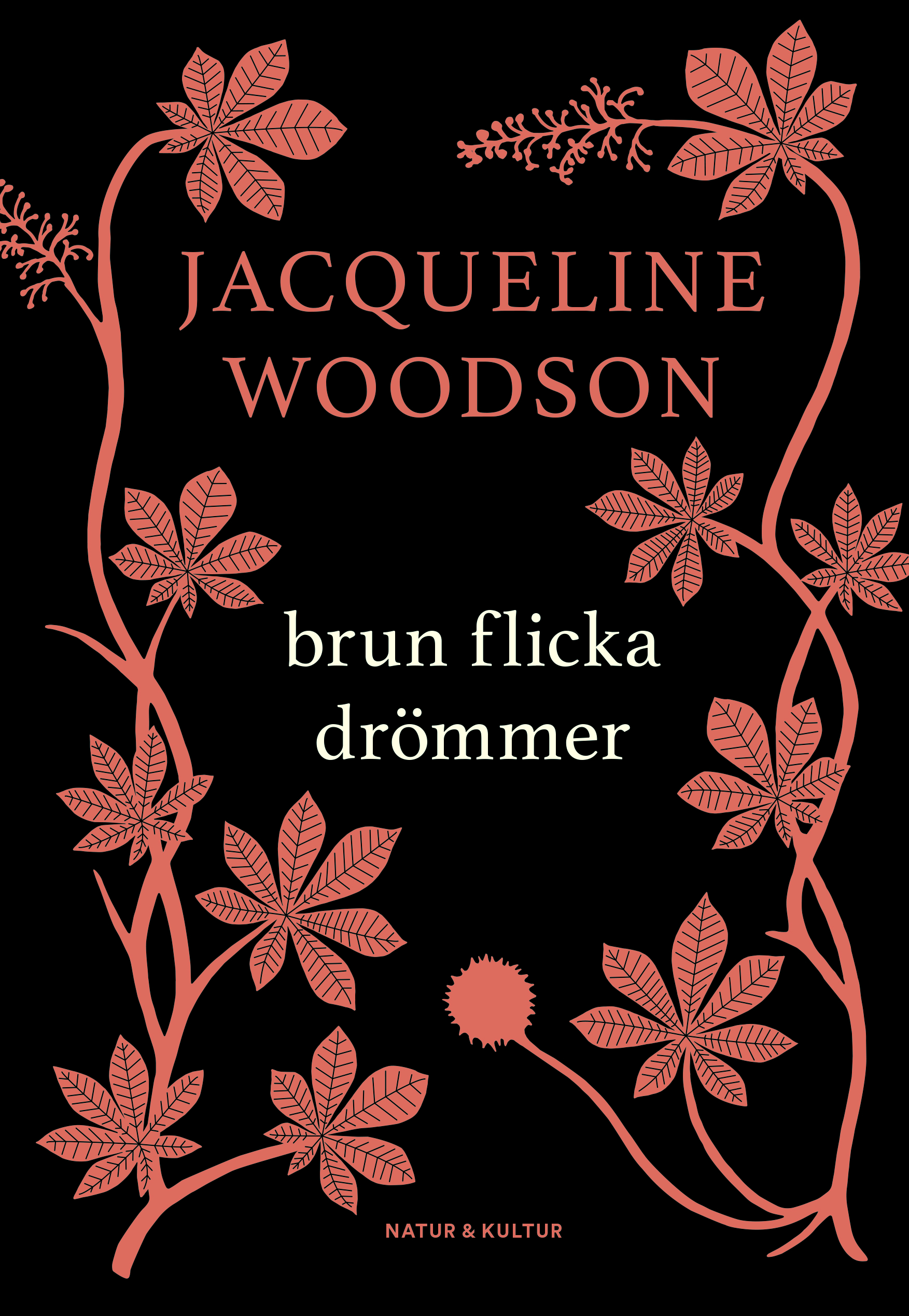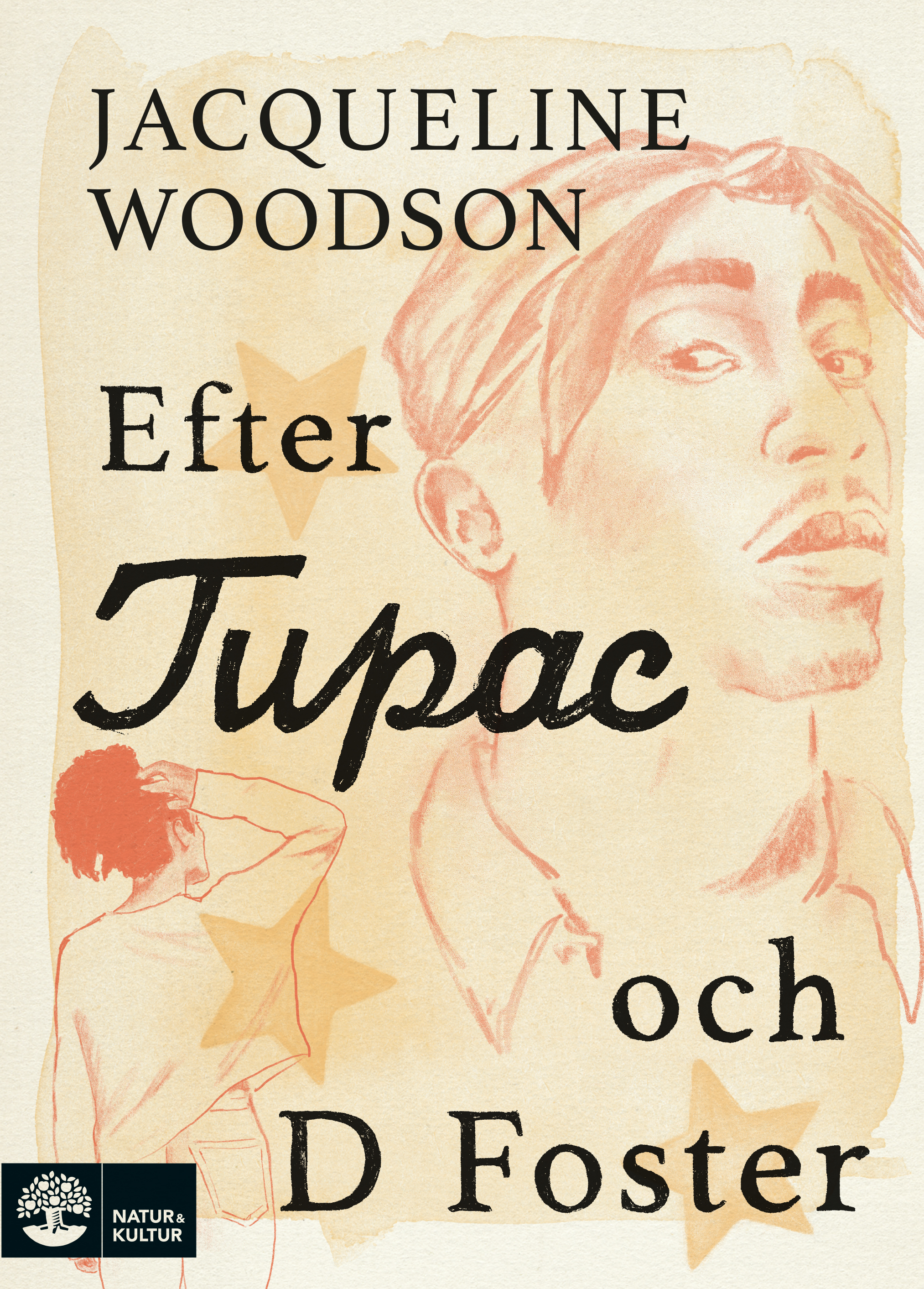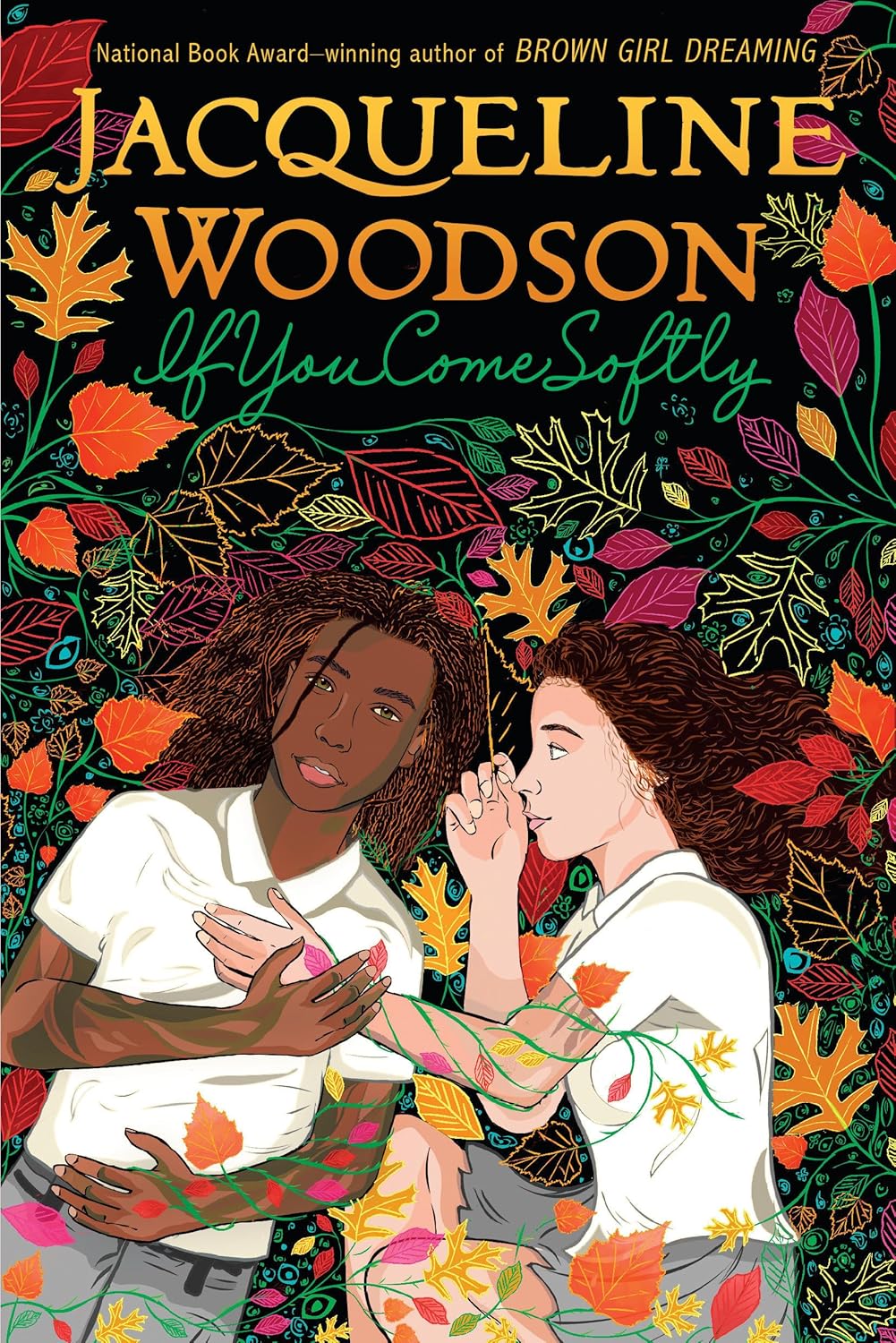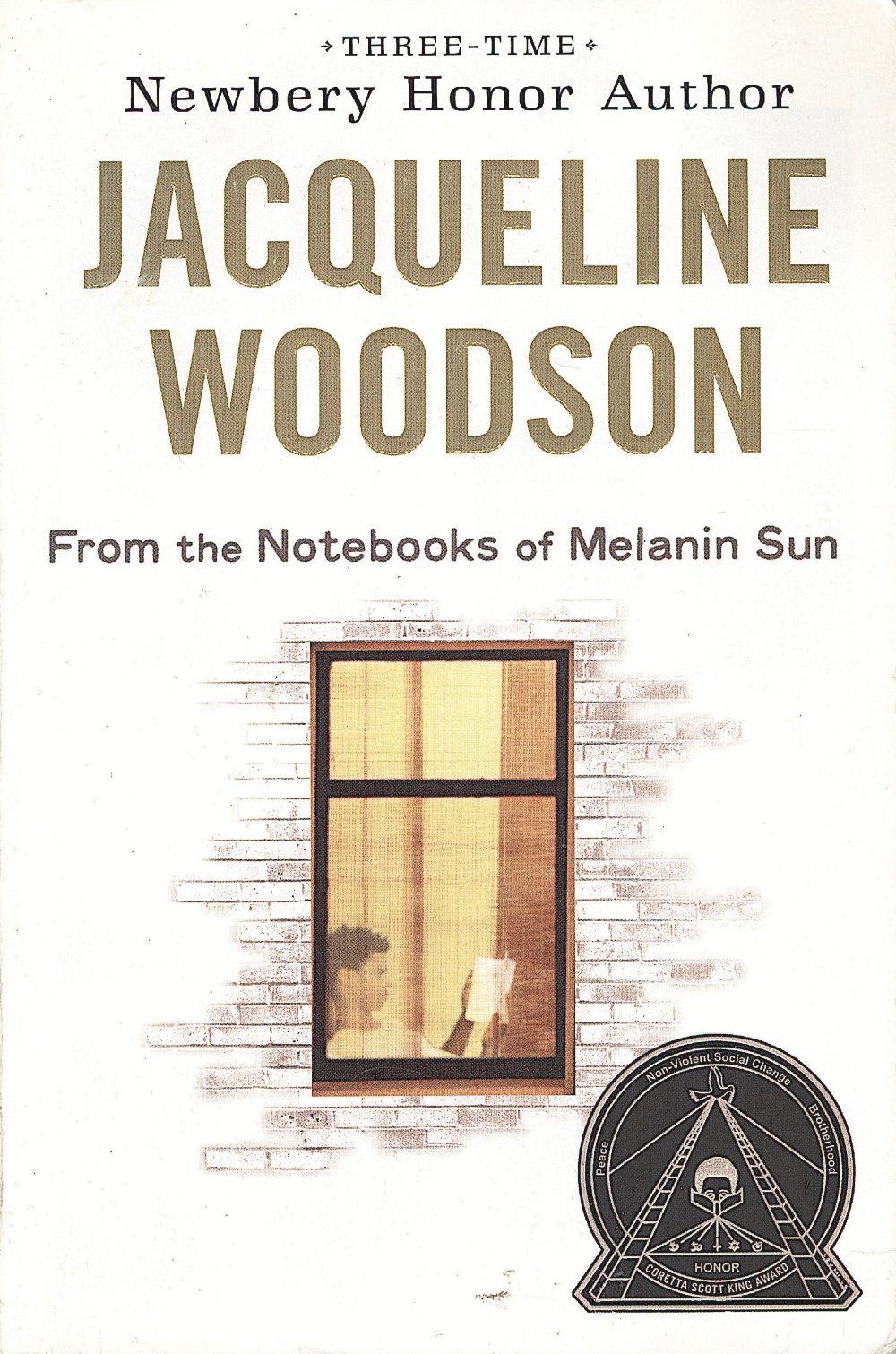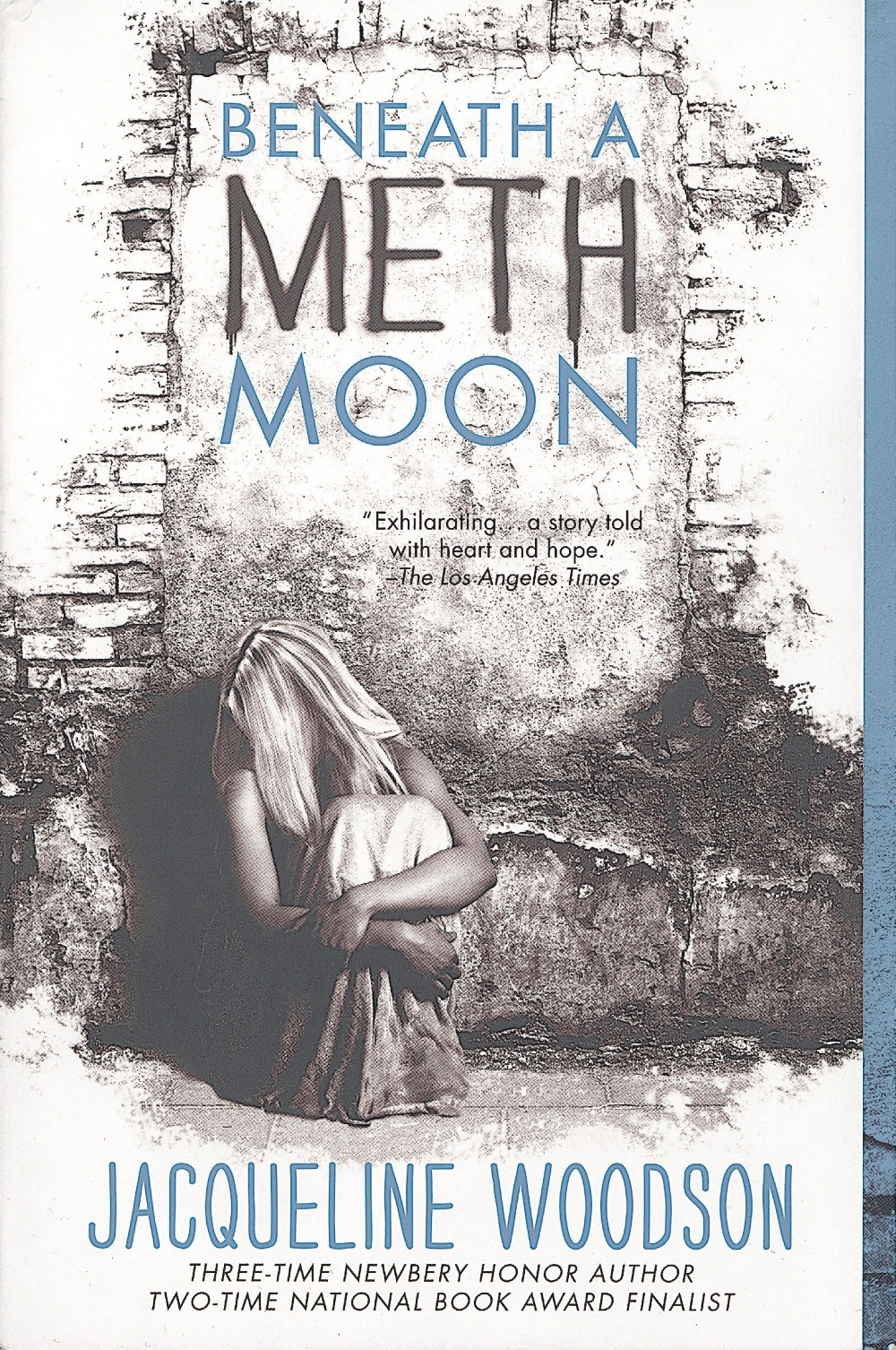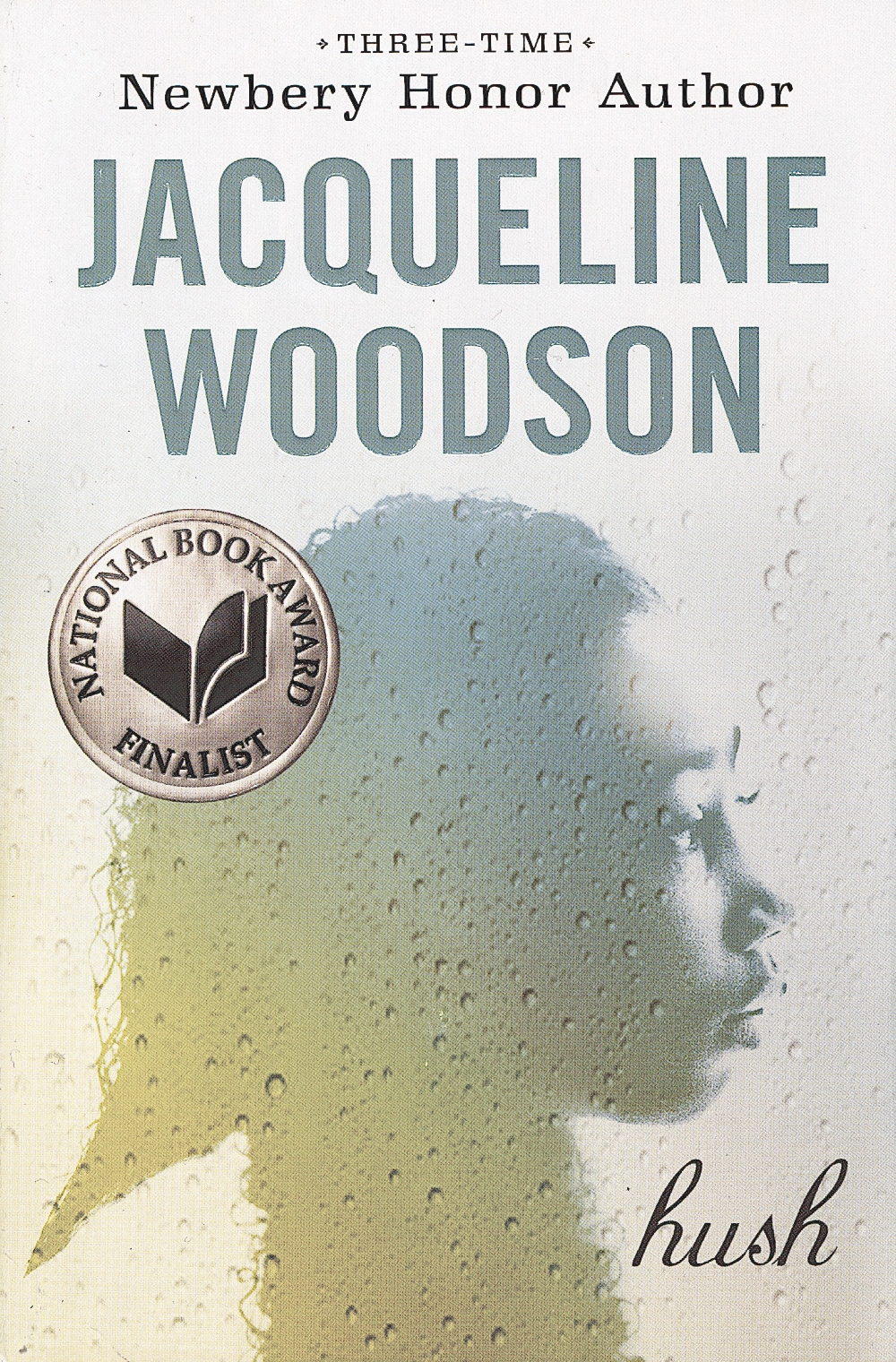Poetic note between sorrow and hope
Jacqueline Woodson is an American author, born in 1963 and residing in Brooklyn, New York. She is the author of more than thirty books, including novels, poetry and picture books. She writes primarily for young teens, but also for children and adults. One of her most lauded books is the award winning autobiographical Brown Girl Dreaming (2014).
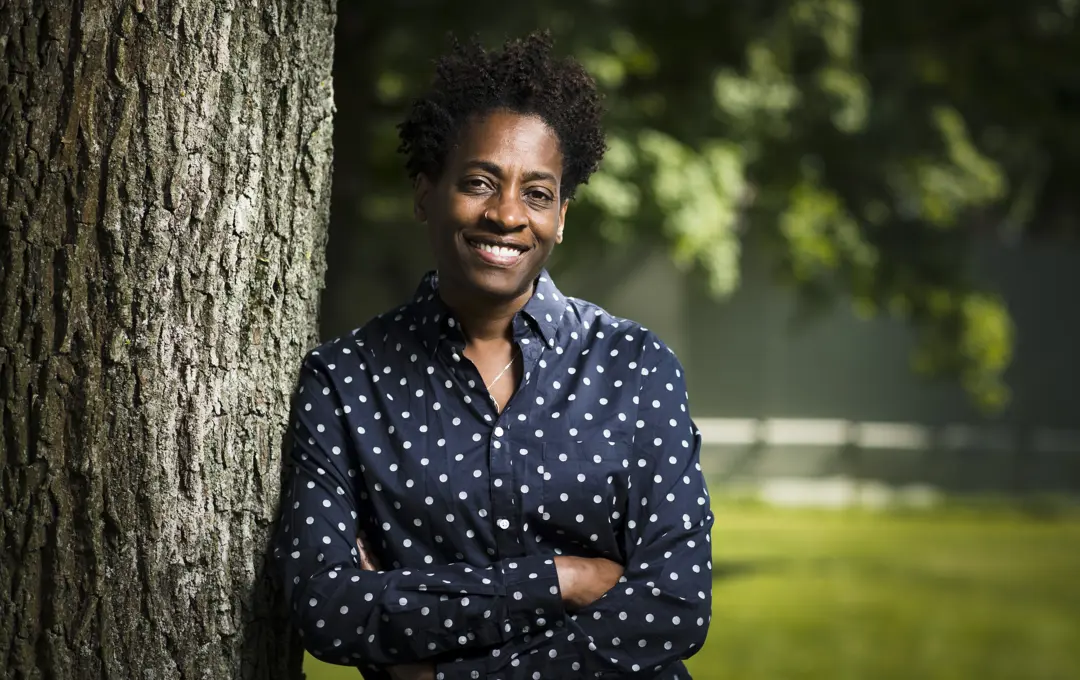 Photo: Stefan Tell
Photo: Stefan TellQuick facts
The jury’s motivation
Jacqueline Woodson introduces us to resilient young people fighting to find a place where their lives can take root. In language as light as air, she tells stories of resounding richness and depth. Jacqueline Woodson captures a unique poetic note in a daily reality divided between sorrow and hope.
Jacqueline Woodson frequently writes about teens making the transition from childhood to adult life. Masterful characterization and a deep understanding of the adolescent psyche are hallmarks of her work. Her books are written in the first person, usually from a female point of view. Racism, segregation, economic injustice, social exclusion, prejudice and sexual identity are all recurring themes.
A deep understanding of the adolescent psyche
This text was written in 2018 by members of the award jury.
Jacqueline Woodson is an American writer, born in Columbus, Ohio in 1963. She grew up partly in Greenville, South Carolina and partly in Brooklyn, her current home. Her books have won many awards and in January she was named National Ambassador for Young People’s Literature in the United States, a two-year appointment. Her motto as ambassador is “Reading = Hope X Change,” a choice that says a great deal about this prolific and multifaceted laureate and her message.
Woodson has written more than thirty books, including novels, books of poetry, and children’s literature. Her books have been translated into more than ten languages. Her primary audience is young teens, but she also writes for children, older teens and adults. She made her authorial debut in 1990 with Last Summer With Maizon, the first book in a trilogy about a friendship between two girls. Here, her masterful gift for characterization and her deep understanding of the adolescent psyche are already on display. In the same year she also published The Dear One, a story about teen pregnancy.
In book after book since, Jacqueline Woodson has returned to themes of racism, segregation, economic inequality, social vulnerability, prejudice and sexual identity. She writes in the first person and usually from a female point of view. Sometimes, however, her narrator is a boy: like eleven-year-old Lonnie, who tells us his story in Locomotion (2002). Lonnie and his little sister Lili have lost both parents in a fire and the two siblings now live with different foster mothers. Lonnie misses his sister fiercely. At school, Lonnie’s teacher encourages the children to write poems, and in the act of writing—the search for words—Lonnie discovers a way to process his grief. “Writing makes me remember,” he writes in one poem. “It’s like my family comes back again when I write.” Like many of Woodson’s characters, Lonnie uses writing as therapy. In a sequel titled Peace, Locomotion (2009), Lonnie writes letters to his sister to give her when they are older and can reunite. The letters give him hope and comfort, and are as lyrical as his poems.
Brown Girl Dreaming, published in 2014 and the winner of that year’s National Book Award, is an autobiographical work and in many ways the centerpiece of Woodson’s oeuvre. It is a story about her childhood that also illumines a chapter in African-American history from a grassroots level. Here, as in so much of Woodson’s work, the individual becomes universal. The young Jacqueline grows up in the 1960s and 1970s, an era of civil rights marches, police brutality and violence. Brown Girl Dreaming is a memoir in free verse, a lyrical scrapbook of personal memories and family stories.
Places are central to Woodson’s books. In Brown Girl Dreaming, love and security exist in South Carolina, where her grandparents live. Its good-smelling gardens and wide blue skies form a dramatic contrast to the crowded concrete streets of Brooklyn. All of her settings are fully fleshed out, her stories tightly bound to the blocks, streets and apartments that her characters inhabit. Woodson’s careful descriptions illustrate social gulfs as well, recording differences between groups in minute detail. Clothing, too, serves as a social marker: for instance, when a character in an African-American neighborhood notices a friend suddenly wearing a style of shoe only white people wear.
After Tupac and D Foster (2008) is a story of lasting friendships. In it two girls who live with their mothers, without much money but in relative security, meet a new girl leading a rougher life on the margins of society. The story deals with the longing for a mother and a better life, dreams reflected in the rap lyrics of the girls’ idol, Tupac Shakur. When Tupac, a world-famous star who writes about their life, their reality, is suddenly shot and killed, the news is a harsh blow for all three. Woodson dissects their grief, but also leaves them with a measure of hope for the future.
A passionate, lightning-bolt love is portrayed in If You Come Softly (1998). Ellie is a white middle-class girl who goes to the same school as Jeremiah, the son of a famous black film producer. One day their paths literally collide, and they fall in love at first sight. Ellie, speaking in the first person, describes their fragile relationship as it grows. Jeremiah’s story is told in the third person and includes the reactions of an outside world shaped by racism and police brutality. “Thing about white people,” his father tells him, “they know what everybody else is, but they don’t know they’re white.”
The thirteen-year-old narrator of From the Notebooks of Melanin Sun (1995) realizes one day that his mother is in love with another woman—a white woman. He pours his indignation and anger into the pages of his journals. We follow the path of Melanin’s thoughts and emotions from rage and despair to the beginnings of understanding and ultimately to acceptance.
The fifteen-year-old protagonist in Beneath A Meth Moon (2012), Laurel, also keeps a diary to work through her feelings. Laurel must confront uncomfortable memories so she can put her past behind her and break free of a drug addiction. Laurel has lost both her mother and her grandmother in Hurricane Katrina, the storm that struck the southern coast of the United States in 2005. Words her grandmother told her now become her mantra: “While you are living…it’s the rocks in your life that will stand by you. Your words, your friends, your family.”
Descriptions of family are also a central part of Woodson’s books. We often meet embattled families whose fathers are physically or emotionally absent. Hush (2002) is a story about loss, lives disrupted, and the difficulties faced by a family trying to start over. The father is the only African-American policeman in his district in Denver, Colorado. He becomes a witness to the fatal shooting of an unarmed, unresisting African-American boy who is gunned down by two of his fellow policemen. When he decides to testify against them, his family must enter witness protection, change their identities, and leave Denver.
Through the eyes of his younger daughter, we watch the father sink into depression. He sits by the window, unreachable, lost in his head. Meanwhile, the mother finds sanctuary with the Jehovah’s Witnesses. Each daughter finds her own way of coping with her new life. One immerses herself in schoolwork so she can get into a good college. The other throws herself into running. “I am no longer who I was in Denver, but at least and most I am,” one daughter says. In other words, she refuses to be a victim of her circumstances.
Jacqueline Woodson’s stories breathe compassion, solidarity, and empathy. Using varied and deceptively simple language, she imbues each of her characters with a unique voice. Through these voices, she tells a highly personal history of our times. As she urges in Brown Girl Dreaming: “Even the silence has a story to tell you. Just listen. Listen.”
It's important to hold up mirrors for kids to see their experience is legitimate. Too often those mirrors aren't there for them.
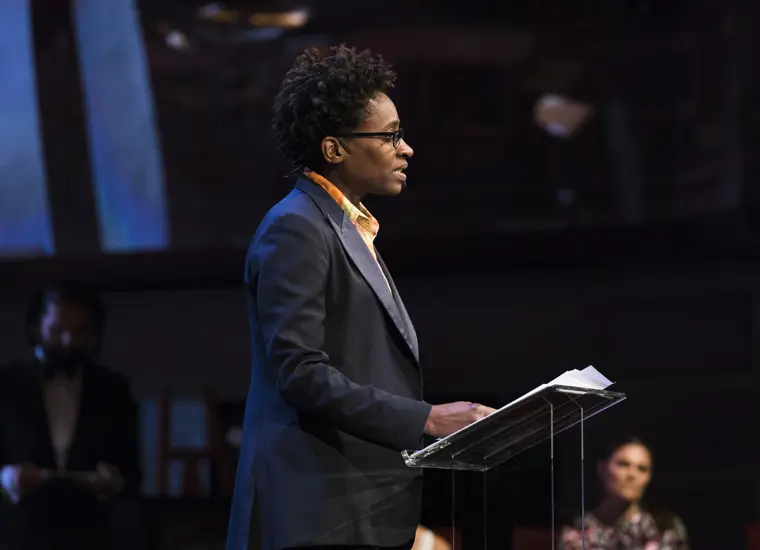
Acceptance Speech
"As a writer I not only think about language but about the many, many people who will read my words. And what mirrors of themself they will see in those words. I never want a young person walking away from my work feeling lesser than, or wrong somehow. I never want a young person to see the color of their skin used to refer to something evil."
The full acceptance speech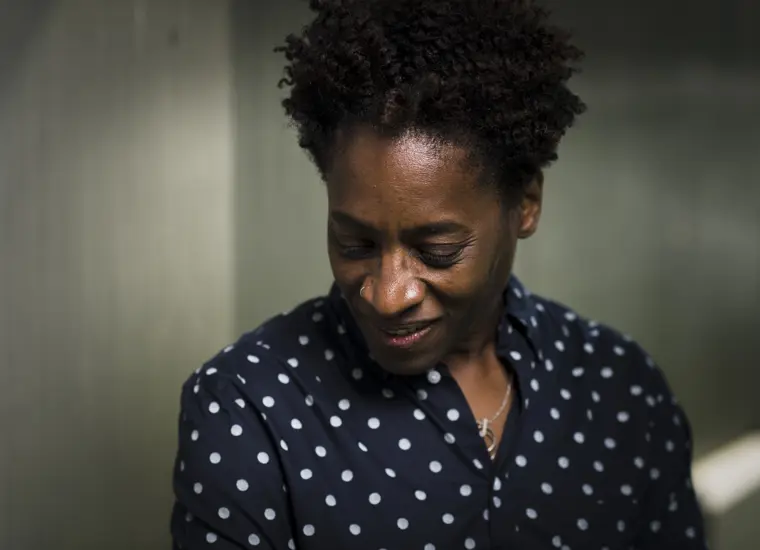
"The young people have always been thoughtful and deliberate"
Why does Jacqueline Woodson write about young people? What does becoming an ALMA laureate mean to her and what does she have to say to young aspiring authors?
Read our interview with the 2018 LaureateJacqueline Woodson in conversation with journalist and translator Yukiko Duke. Filmed at Litteralund Book Festival on 25 April, 2022.

Discover our laureates
The Astrid Lindgren Memorial Award is awarded to authors, illustrators and narrators, but also to people or organizations that work to promote reading.
Find out more about the laureates
Children have the right to great stories
To lose yourself in a story is to find yourself in the grip of an irresistible power. A power that provokes thought, unlocks language and allows the imagination to roam free. The Astrid Lindgren Memorial Award was created in 2002 by the Swedish government to promote every child’s right to great stories.
Find out more about the award